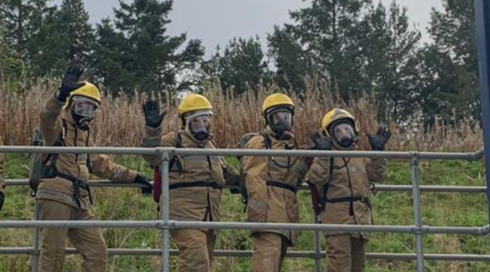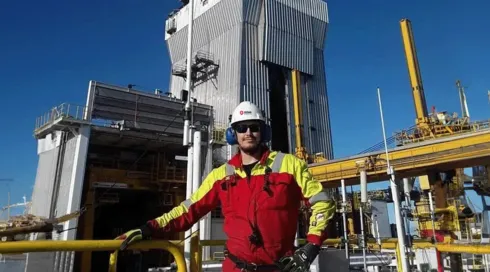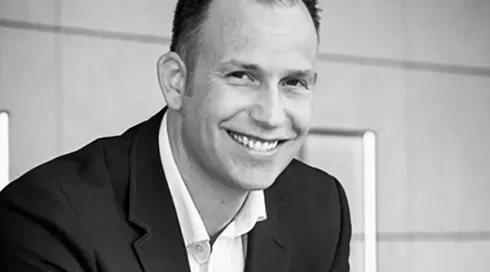3
International recruitment company Atlas Professionals plays a leading role in the provision of professionals to the energy, marine and renewables industries worldwide. The relatively new market area of decommissioning seamlessly integrates with these activities.
In addition to falling production rates, maintaining old platforms and wind turbines is also no longer profitable due to increasing operations and maintenance costs. “There is a clear trend towards dismantling due to the energy transition and the volatile oil price. There are around 500 old oil and gas platforms throughout the North Sea, particularly in the United Kingdom, Norway and the Netherlands. Of those platforms, 150 are based in the Netherlands,” explains business manager Robin van Woerden at Atlas Professionals’ head office in Hoofddorp, the Netherlands. The company responds to the need to decommission old platforms to demolish or reuse them with its knowledge and experience.
"Everyone knew they had to be decommissioned in a safe and cost-efficient way, but the question always was ‘when?’," says Van Woerden. With its expertise as an HR service provider in the Oil & Gas and Renewables industries, Atlas Professionals can also properly advise its customers in decommissioning and deliver the right people to conduct these activities. The company does this both for the dismantling of old oil and gas platforms (with a life cycle of 40 to 60 years) and for old wind turbines (with a lifespan of around 20 to 25 years).
Specialised market
Decommissioning is a niche market that requires specialised personnel. “Everything that gets installed with large equipment must also be dismantled with large equipment. Think about lifting an entire platform or a part of it out of the water, with dedicated specialist crews,” explains Van Woerden.
Atlas has been providing professionals throughout the entire lifecycle of offshore projects for many years, and therefore is familiar with the various phases and specific requirements of projects. As such, Atlas has a good picture of which competencies are needed in the final phase of a project: decommissioning.
“What does the work environment look like, which competencies are important and which certificates are required? The better you know the projects, the better you can deliver added value in the decommissioning phase,” says Van Woerden.
Pressing personnel shortage
There is not a big pool of decommissioning professionals available, Van Woerden continues. At the moment, there mainly is a shortage of competent technical personnel. More than 80 percent of vacancies are difficult to fill. “These shortages naturally also apply to projects in the decommissioning market. Finding the right employees in this sector is therefore crucial. Thanks to our broad expertise, we can adequately provide our partners with human capital solutions for decommissioning projects,” says Robin van Woerden.
Atlas has already begun to place its professionals in the decommissioning phase of various offshore projects across Europe. The company’s formula is based on sharing (worldwide) knowledge, experience and providing competent personnel. Whilst the group of professionals that have experience with decommissioning is still minimal, Atlas is using its resources to create an inflow of human capital in several ways. This is done through promoting studies and training courses, exhibiting at conferences and attending networking events but also through good screening based on competencies to ensure that the right candidates get started in the challenging decom market.
Offshore wind
In addition to its head office in Hoofddorp, Atlas Professionals has other branches in the Netherlands; Urk, Capelle aan den IJssel and since last year Flushing. The latter focuses entirely on onshore and offshore renewables (wind). “The developments in the industry are gaining a lot of momentum. From old wind turbines with a capacity of 0.5 MW to the current 12 MW, twenty-four times more than before! But those wind turbines will eventually also have to be given a life-extension or removed.”
“To date, several offshore wind farms and test sites have been decommissioned, including the eleven turbines of the Danish Vindeby (developed in 1990) and the four turbines of the Dutch wind farm Lely (1992) that had reached the end of its lifespan in 2017,” said the business manager of Atlas Professionals. The latest to be decommissioned is Blyth Offshore Wind Farm, which marked the beginning of the offshore wind industry in the UK when it was installed in 2000. As a nice touch: its legacy will live on in the town of Blyth as one of the removed turbines will be installed on its harbour and used as a training facility.
Project organisation
Unlike the relatively young Flushing office, Atlas has had an office that specialises in offshore wind and cables in Bristol (UK) for many years, that shares its acquired knowledge internationally. As a whole, the company has been active in the wind industry for 15 years and has specialised in providing HR solutions for every project phase: from development, installation, operations and maintenance to decommissioning.
Atlas Professionals has dedicated teams for all elements of this lifecycle. Internally, the knowledge of projects is of course shared with colleagues. As a result, Atlas can sometimes even supply the candidate for a decommissioning project that has previously participated in commissioning it.
For more information about Atlas Professionals' HR services and job opportunities in decommissioning, click here.
.png)
.png)


